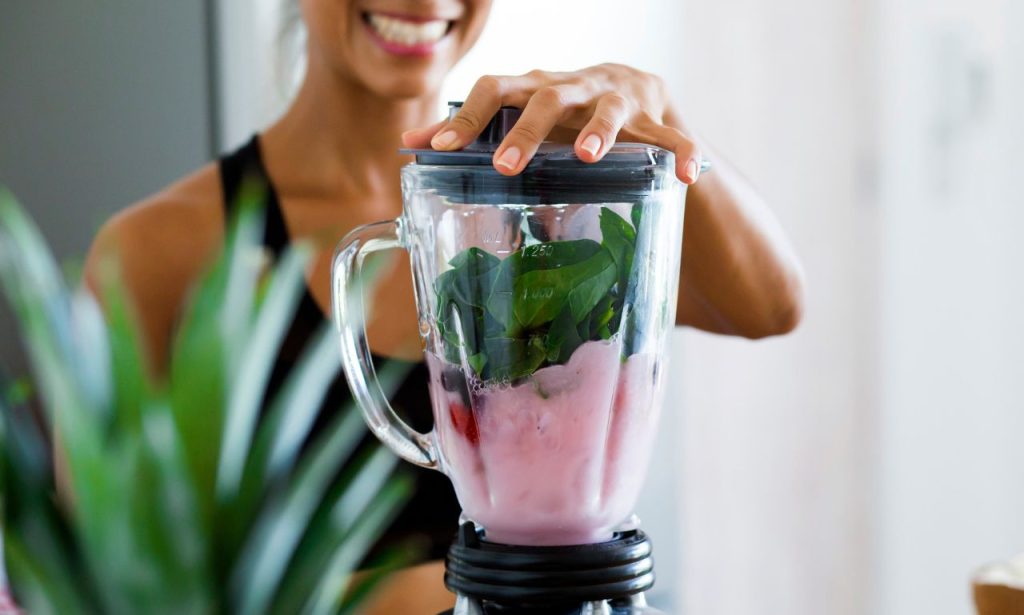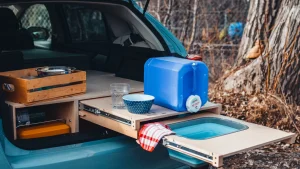So, you’re dreaming of sunshine in a cup, of crafting delicious whirlwinds of fruity goodness, of building a smoothie empire one delicious blend at a time? That’s fantastic! But before you start picturing lines out the door, you need to lay the groundwork for your smoothie haven. And that starts with answering a crucial question: what equipment do you need to start a smoothie business?
This isn’t just about blenders and ice (though those are certainly vital!). It’s about creating a functional, efficient, and ultimately successful smoothie operation. We’re talking about the tools and tech that will streamline your workflow, wow your customers, and keep those delicious profits flowing.
Buckle up, smoothie aficionado, because we’re diving deep into the world of smoothie shop equipment, exploring not just the “what” but the “why” and the “how” to equip your business for sweet, sweet success.
Essential Equipment for a Smoothie Business
Just like a perfectly blended smoothie, a successful smoothie shop requires the right mix of ingredients. But instead of fruits and veggies, we’re talking about the essential equipment that forms the backbone of your operation.
Powering Your Blends

Let’s be honest, a smoothie shop without a powerful blender is like a beach without sand – it just doesn’t work! Your blender is the heart of your operation, the workhorse that will transform piles of fruits, veggies, and ice into irresistible liquid gold.
Why Commercial Grade Matters: You might be tempted to grab that trusty blender from your kitchen counter, but trust us, commercial-grade is the only way to go. Here’s why:
- Durability: Commercial blenders are built to withstand the rigors of constant use, day in and day out. They can handle tough ingredients, large quantities, and won’t burn out after a few rounds of kale and pineapple.
- Power: We’re talking pulverizing power! Commercial blenders are designed to crush ice, pulverize frozen fruit, and create those perfectly smooth, lump-free textures your customers crave.
- Efficiency: Time is money, and commercial blenders are built for speed. They can whip up a smoothie in seconds, keeping your line moving and your customers happy.
Choosing the Right Blender:
- Countertop vs. Under-Counter: Countertop blenders are great for smaller spaces and offer flexibility, while under-counter models save precious counter space and reduce noise.
- Power and Capacity: Consider your anticipated volume and the types of smoothies you’ll be making. A high-volume shop might need multiple blenders with varying capacities.
- Features: Look for features like pre-programmed settings for consistent results, sound enclosures to minimize noise, and easy-to-clean designs.
Top Brands to Consider:
- Vitamix: Known for their exceptional power, durability, and versatility.
- Blendtec: Renowned for their powerful motors and sleek designs.
- Hamilton Beach: Offers a range of reliable and affordable options for smaller operations.
Beyond the Blend
While not strictly necessary for smoothies, a commercial juicer can be a valuable addition to your arsenal, allowing you to diversify your menu and attract a wider range of customers.
Why Offer Juice?
- Health-Conscious Customers: Freshly squeezed juice is a powerful draw for health-conscious consumers seeking a quick nutrient boost.
- Menu Expansion: Offer a variety of fresh juices, juice blends, or even incorporate them into your smoothies for an extra nutritional punch.
- Profit Potential: Juices often command higher profit margins than smoothies, making them a lucrative addition to your menu.
Types of Juicers:
- Centrifugal Juicers: These work quickly and are great for beginners, but they may generate more heat, potentially degrading some nutrients.
- Masticating Juicers: These operate at a slower speed, preserving more nutrients and yielding a higher juice yield, but they are typically more expensive.
- Cold-Press Juicers: These use immense pressure to extract juice, resulting in the highest nutrient retention and yield, but they come with a higher price tag.
Choosing the Right Juicer:
- Volume: Consider your anticipated juice sales and choose a juicer that can handle the volume without constant emptying.
- Yield: A higher juice yield means less waste and more profit, so look for juicers known for their efficiency.
- Ease of Cleaning: Juicers can be notoriously difficult to clean, so prioritize models with easy-to-disassemble parts and dishwasher-safe components.
Top Brands to Consider:
- Omega: Offers a range of high-quality masticating and cold-press juicers.
- Breville: Known for their sleek designs and user-friendly features.
- Hurom: Specializes in slow juicers with high juice yields and minimal noise.
Keeping it Cool
Behind every delicious smoothie is a carefully orchestrated symphony of fresh ingredients, and that’s where refrigeration comes in. Proper refrigeration is non-negotiable when it comes to maintaining the quality, safety, and freshness of your ingredients.
Refrigeration Essentials:
- Reach-in Refrigerator: This is your workhorse, providing easy access to frequently used ingredients like fruits, veggies, yogurt, and milk. Choose a model with adjustable shelving to accommodate different container sizes.
- Under-Counter Refrigerator: Ideal for smaller spaces, these units can store backup ingredients or less frequently used items.
- Freezer: Essential for storing frozen fruits, ice cream, and any other ingredients that require freezing.
Factors to Consider:
- Capacity: Ensure you have enough refrigeration space to store all your ingredients comfortably without overcrowding.
- Temperature Control: Accurate temperature control is crucial for food safety. Look for units with digital thermostats and alarms.
- Energy Efficiency: Refrigeration units can be energy hogs, so choose energy-efficient models to save on operating costs.
Top Brands to Consider:
- True Refrigeration: Known for their durability, reliability, and energy efficiency.
- Beverage-Air: Offers a wide range of refrigeration solutions for food service businesses.
- Traulsen: Specializes in high-performance refrigeration units for demanding applications.
Prepping for Perfection
While your blender is the star of the show, a reliable food processor is an invaluable sidekick, especially when it comes to prepping ingredients in larger batches.
Why a Food Processor?
- Efficient Prepping: Quickly chop fruits, vegetables, and nuts for smoothies, saving you valuable time and effort.
- Consistency: Ensure consistent ingredient sizes for even blending and optimal texture in your smoothies.
- Versatility: Use your food processor to create other menu items like sauces, dips, or even energy balls.
Choosing the Right Food Processor:
- Capacity: Choose a size that suits your needs, considering the volume of ingredients you’ll be processing.
- Power: Opt for a model with enough power to handle tough ingredients like nuts and frozen fruits.
- Features: Look for features like multiple blades for different tasks, pulse function for precise control, and dishwasher-safe parts for easy cleaning.
Top Brands to Consider:

- Cuisinart: Offers a wide range of reliable and well-regarded food processors.
- KitchenAid: Known for their stylish designs and powerful performance.
- Breville: Offers innovative features and sleek aesthetics.
Conclusion
Opening a smoothie business is an exciting adventure, one filled with the promise of delicious creations and satisfied customers. By investing in the right equipment—from the blenders that power your creations to the POS system that streamlines your operations—you’ll be well on your way to creating a smoothie empire that’s both profitable and built to last.
Remember, what equipment do you need to start a smoothie business is just the first question. The real magic happens when you combine the right tools with your passion, creativity, and commitment to serving up smiles, one delicious smoothie at a time.
ALSO READ: What is the Lightest Electric Scooters
FAQs
A: Yes, you will likely need various licenses and permits to operate a food service business, including a business license, food handler’s permit, and potentially others depending on your location. Check with your local and state authorities for specific requirements.
A: There are many effective ways to market your smoothie business, including social media marketing, local partnerships, loyalty programs, and offering special promotions.
A: Profitability depends on factors like pricing strategy, cost control, menu optimization, and efficient operations. Conduct thorough market research, analyze your costs, and adjust your strategies as needed.




